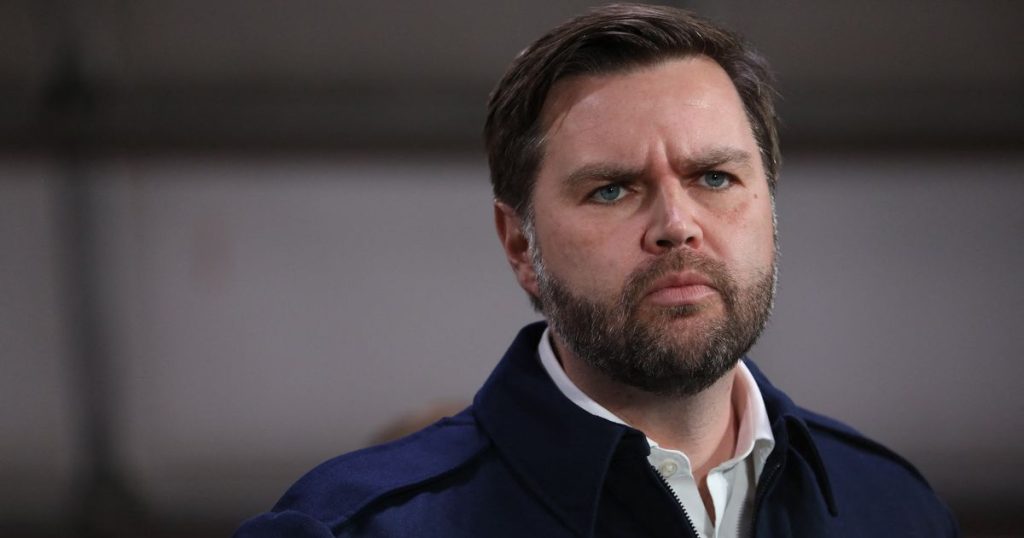The recent debate over the separation of powers in the U.S. government has sparked intense discussion, particularly in light of a legal battle involving Elon Musk and a federal judge. The conversation began when J.D. Vance, a prominent political figure, took to X (formerly Twitter) to address what he sees as judicial overreach into the executive branch’s authority. Vance argued that judges should not interfere with the legitimate powers of the executive branch, such as military operations or prosecutorial discretion. He emphasized that judges do not have the legal authority to dictate how the executive branch exercises its discretion, whether in matters of national security or law enforcement. This statement draws attention to the delicate balance of power among the three branches of government, as outlined in the U.S. Constitution.
Vance’s comments were quickly amplified by Elon Musk, the head of the Department of Government Efficiency (DOGE), a non-cabinet level agency tasked with reducing government spending. Musk reposted Vance’s statement on X, signaling his support for the idea that the judiciary should not encroach on the executive branch’s prerogatives. However, Musk’s own actions have come under scrutiny in a separate but related legal showdown. On Friday, attorneys general from 19 states filed a lawsuit against the federal government, alleging that Musk’s DOGE team violated federal law by accessing the Treasury Department’s central payment system. The lawsuit claims that this action was an overstep of the executive branch’s authority and that it improperly intruded on the Treasury’s operations.
The legal challenge took a significant turn when U.S. District Judge Paul A. Engelmayer temporarily blocked Musk’s DOGE team from accessing the Treasury Department’s central payment system. This ruling underscores the judiciary’s role in checking the actions of the executive branch, even as Vance and Musk argue that such interference is inappropriate. Engelmayer’s decision is a clear assertion of judicial authority to review and limit executive actions when they are deemed to exceed legal boundaries. However, the judge did not immediately respond to requests for comment, leaving many questions about the rationale behind his ruling unanswered.
Despite the legal setback, Vance continued to voice his concerns about judicial overreach. Shortly after posting his initial statement, he reposted a comment from Adrian Vermeule, a constitutional law professor at Harvard University. Vermeule echoed Vance’s sentiment, writing that judicial interference in the internal functioning of a co-equal branch of government represents a violation of the separation of powers doctrine. Vermeule’s argument is rooted in the idea that each branch of government—legislative, executive, and judicial—must respect the autonomy of the others to maintain the balance of power enshrined in the Constitution.
The debate highlights the ongoing tension between the executive branch and the judiciary, particularly in cases where the executive seeks to assert its authority in ways that are perceived as unconventional or expansive. Musk’s DOGE initiative, with its focus on cutting government spending, has been a lightning rod for criticism, particularly from those who view its actions as overreaching or circumventing established legal processes. At the same time, the judiciary’s role in reviewing executive actions ensures that the government remains accountable and operates within the bounds of the law.
As this legal drama unfolds, it raises important questions about the limits of executive power, the role of the judiciary in checking that power, and the broader implications for governance and accountability. The outcome of this case could set a precedent for how the executive branch interacts with other branches of government in the future, particularly in initiatives aimed at reducing government spending or streamlining operations. For now, the temporary block on Musk’s DOGE team accessing the Treasury’s payment system serves as a reminder of the judiciary’s role in enforcing constitutional boundaries, even as debates over the proper scope of judicial authority continue to rage.
